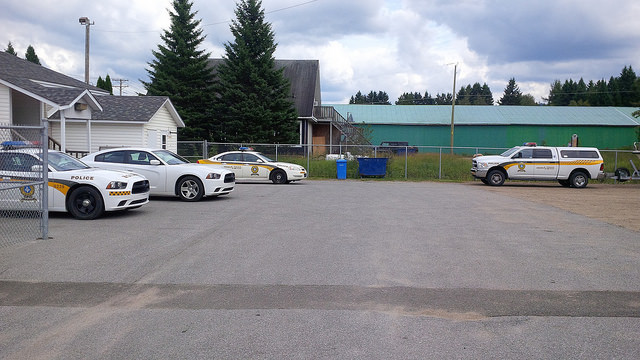
MONTREAL — John Allore last saw his 19-year-old sister Theresa on a foggy day in the fall of 1978, as she boarded a train in Saint John, N.B., to head home to Quebec after Thanksgiving weekend.
Allore, then 14, remembers giving her a Styx album to mark her 19th birthday before she headed back to Quebec’s Eastern Townships, where she studied at Champlain College.
Six months later, Theresa Allore’s badly decomposed body was found facedown in a shallow river about a kilometre from the dormitory where she lived in nearby Compton.
While the coroner on the scene reported seeing signs pointing to possible strangulation, autopsy results were ultimately inconclusive, and police hypothesized she’d likely died of a drug overdose.
Almost 40 years after his sister’s disappearance, Allore is still looking for answers.
In a phone interview, the 54-year-old father of three said his sister’s death began to gnaw at him years later, after he grew up and became a father.
“If you don’t really know, what are you going to tell your kids when they grow up about what happened to Aunt Theresa?” he said from Sherbrooke, Que., where he was visiting from his home in North Carolina.
His persistence has spawned a website and a podcast dedicated to Theresa and other women who went missing in Quebec in the 1970s. He is trying to shed light on their cases and expose what he calls the “systemic justice failures” that have caused their cases to remain unsolved.
Sometime around 2001, Allore began poring over police reports, piecing together his sister’s last-known whereabouts on Nov. 3, 1978 — the last day she was seen alive.
That Friday, she told friends at school she planned to study and work on a book report.
She also made plans to meet some friends back at the residence at about 9 p.m. to listen to records, but never showed up, Allore chronicles on his website, “Who Killed Theresa?”
Over the years, Allore has become highly critical of the investigative procedures at the time — especially after he learned his sister’s clothing had been thrown away five years after her death.
In his sister’s case, he questions why police and the school appeared reluctant to look for her, and why authorities later clung to the overdose theory, even though Theresa was found wearing only a bra and underwear with no evidence of drugs in her system.
As he delved into records, Allore kept coming across more cases of other girls and women who went missing around the same time and in the same area.
He says many of the 20 or so cases listed on his website contain similar elements: nude or semi-nude bodies found outside, signs of strangulation, sexual assault and use of a vehicle.
After decades of amateur sleuthing, he’s convinced that one or more serial killers were operating in the Montreal area in the 1970s — one of whom, he thinks, might have picked up his sister as she tried to hitchhike from the campus to her dormitory.
Almost 40 years later, he realizes he may never know for sure.
“At this point, I don’t think it can be solved, and there’s a lot of them I feel this way,” he said.
While he originally focused on his website, Allore started a true-crime podcast in 2017 in the hopes of keeping the missing women in the public eye.
He’s been slowly increasing his audience, with people tuning in from places such as Australia and Scandinavia.
Allore admits his continued focus on grisly murders is draining, and at times he’s wondered whether the exposure for the victims is worth the emotional toll it takes.
“These things are traumatizing, they do create PTSD, so you have to balance it,” he said. “But that’s the cost, and I think it’s a worthy price.”
Quebec provincial police announced earlier this year it was beefing up its cold-case team to nearly 30 from five, in order to apply modern investigative techniques to some 750 unsolved cases going back 50 years.
A photo of Theresa, grinning broadly and dressed in a green tank top, appears on the police’s website next to a few details about her case, which is listed as “unresolved.”
“Although the case was treated as a disappearance at the time, over time all avenues of inquiry have been studied and still are today,” said the blurb on the police website.